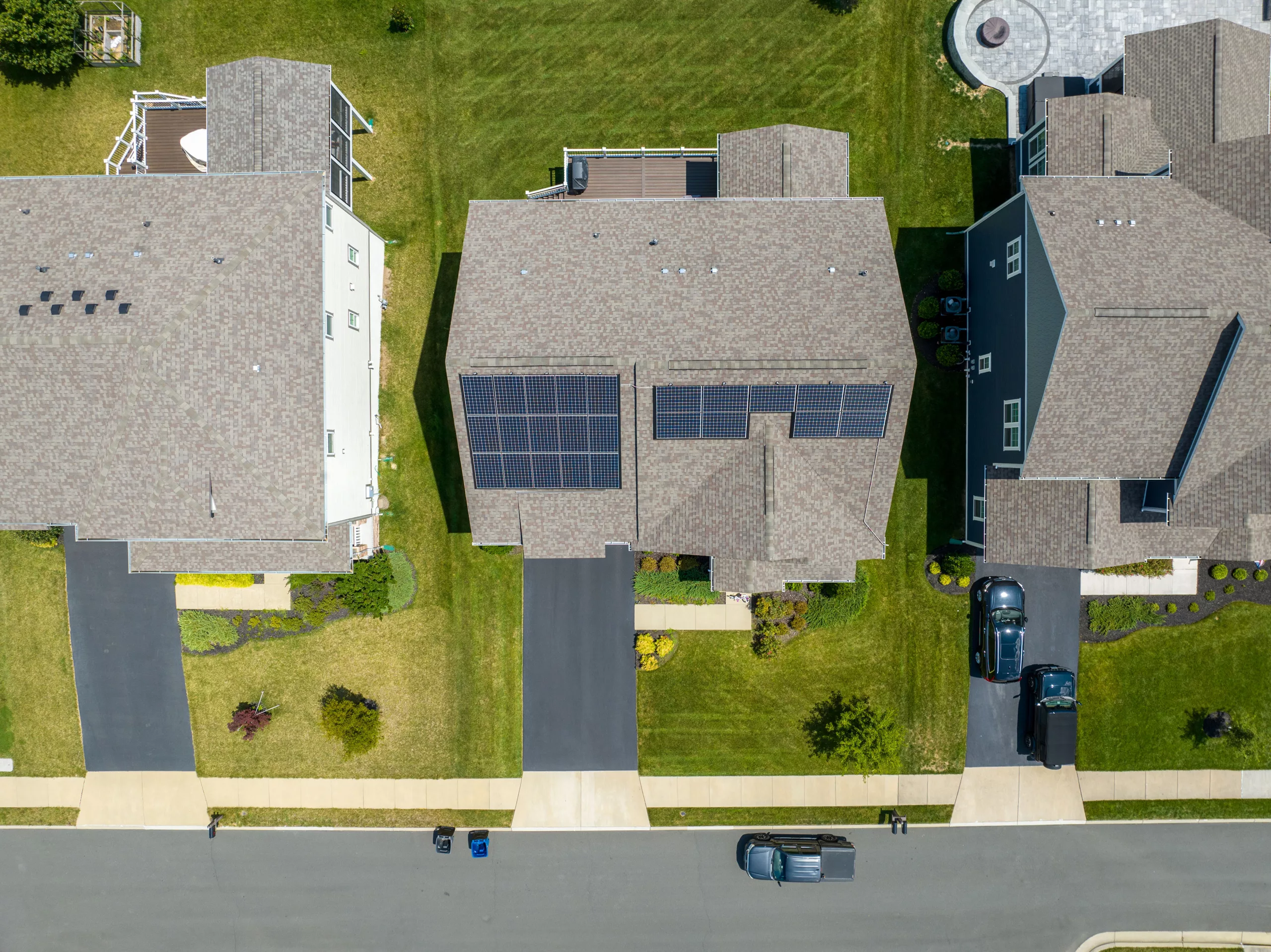Have you thought about solar for your home in the past and “just haven’t been able to get to it yet?” If so, you’re in the same boat as millions of other Americans who have yet to take advantage of solar power. No time is better than now to get started, with more financial incentives available and lower costs as rooftop solar installations smash records nationwide.
By investing in rooftop solar for your home, you can save money, protect yourself from rising utility rates and, when paired with a backup battery, create “off the grid” energy independence.

People with rooftop solar systems save an average of $1,500 per year and between $20,000 and $96,000 over the system’s lifetime. And, if your utility company begins building new transmission lines and generation (which Dominion Energy and Appalachian Power are doing to serve the energy needs of data centers), electric rates may increase even more quickly. Solar panels can help your bills stay low and protect you from rising rates. And now it is easier than ever! Carrie Costa, who installed a system through Solarize, said “Solarize Virginia made it so that I didn’t have to worry about a single thing. It was so easy!”
A few key factors make right now the optimal time to go solar at your home.
The first is “net metering,” which is how your electric company grants you “credit” for the energy you produce. Net metering works like this: On a nice sunny day, when your solar panels are generating maximum energy and feeding energy directly into your home, any extra energy you don’t use in that moment goes back into the grid for others to use, and you get a 1:1 “net metered” credit. These credits get applied to you, so when your solar system generates less energy than you use (think: cloudy days), your utility reaches into that “bank” of credits you have accumulated and applies them to your bill.
State utilities expect to reevaluate the value of these net metering credits within the next year, so if you sign up for solar before then, you’ll be locked into that 1:1 credit, even if their value is assessed to be lower.
Second, we have historically low prices with a 65% reduction in rooftop solar costs over the past decade. Both increased scales of solar panel production and the 30% federal tax credit reduce costs to homeowners looking to go solar. Battery costs have also decreased, making full energy independence, with solar production and battery backup for your home, more affordable than ever. The Solarize Virginia program furthers the cost savings with pre-negotiated, discounted rates from well-qualified, pre-vetted solar installers.
Beyond cost savings and energy independence, installing a rooftop solar system also has a powerful community impact. In response to climate change, Virginia’s Clean Economy Act, adopted by the General Assembly in 2020, mandates that all energy production by utilities come from renewable sources by 2050. Panels on your rooftop are a small but real contribution to meeting that goal and helping us move toward a cleaner, more affordable energy system that works for everyone.
The more households that collectively install solar on their rooftops, and the more businesses and localities that adopt solar in the built environment, such as brownfields, parking lots, and commercial solar, the less impact we make on our state’s transmission infrastructure and generation resources, which are currently being impacted by the high energy demands of the data center industry.
Rooftop solar quickly connects clean energy to the grid, helps our regional energy system and can save you hundreds of thousands of dollars – so, what are you waiting for? Take the first, obligation-free step in your solar journey by signing up for Solarize Virginia before June 30, 2024, and joining the over 50,000 Virginians who are getting clean, affordable energy through rooftop solar.
Have questions about solar or the Solarize Virginia program? Reach out to Ashish Kapoor at [email protected].
